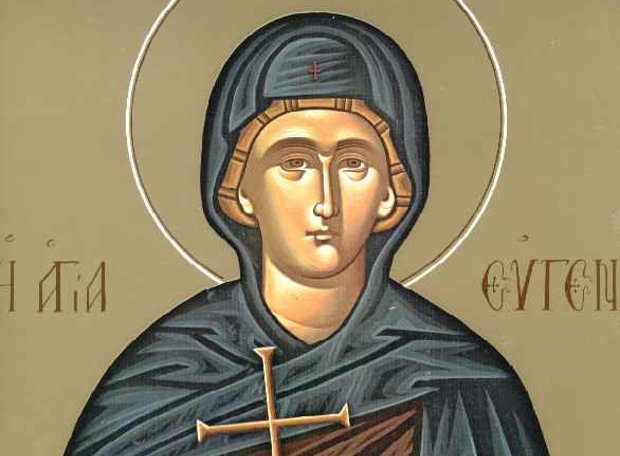One day, a wealthy young woman named Melanthia came to Eugenia seeking help, but when her advances were rejected, she falsely accused Eugenia of wrongdoing. Eugenia was brought before the Prefect, who turned out to be her own father, Philip. Eugenia revealed her true identity and her faith in Christ, leading to her father’s conversion to Christianity.
Together with her father and her companions, Protus and Hyacinthus, Eugenia continued to spread the teachings of Christ in Rome. They helped the poor, sheltered persecuted Christians, and led many to the faith. However, their actions caught the attention of the emperor Galienus, who intensified the persecution against Christians.
Despite the dangers, Eugenia and her companions remained steadfast in their faith. When Basilla, a noblewoman, sought to learn more about Christianity, Eugenia sent Protus and Hyacinthus to teach her. Basilla accepted the faith and was martyred for her beliefs.
Eventually, Eugenia and her companions were also captured and brought before the authorities. They were forced to sacrifice to the idols, but when they refused, miraculous events occurred, proving the power of Christ. In the end, Eugenia was martyred for her faith, fulfilling the promise given to her by the Savior.
Through her courage, faith, and devotion to Christ, Saint Eugenia became a shining example of martyrdom and devotion. Her story continues to inspire and guide believers to this day.
St. Eugenia, a virtuous and devout woman, performed miracles and healed the wealthy woman, Melanthia. However, Melanthia, driven by envy, tried to tempt Eugenia into sin, not realizing that Eugenia was a woman. When her advances were rejected, Melanthia slandered Eugenia to the eparch, leading to Eugenia and the monks being imprisoned.
During her trial, Eugenia revealed her true identity to her father, who was overjoyed and converted to Christianity along with his household. Unfortunately, the Roman emperor sent a cruel commander, Terentius, who had Philip killed. Eugenia then moved to Rome with her family.
In Rome, Eugenia fearlessly spread the Christian faith, converting many, including Basilla, who was later martyred. Eventually, Eugenia herself was martyred on December 25, 262 A.D. Despite attempts to kill her, God protected her, and she even received a visit from the Lord Jesus Himself in prison.
After her death, St. Eugenia appeared in glory to her mother, providing comfort and reassurance. Her life and martyrdom were a testament to her unwavering faith and dedication to spreading the message of Christianity.

